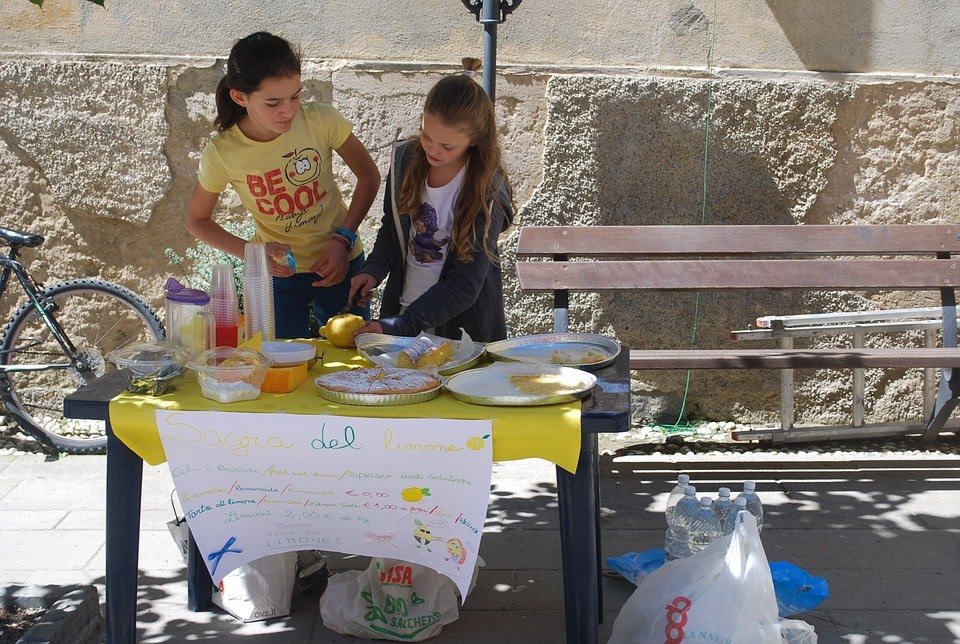Business
Why increasing your kid’s financial knowledge is crucial nowadays
When you teach your children lessons on money, saving, spending, etc and show them clear forms of financial knowledge, you are giving lessons which will shape and change their behaviors.

As the old saying goes, Monkey See, Monkey Do. If we want our children to be financially smart, we need to show them, through our own actions, the things we want them to learn.
Children’s attitudes and behaviors toward money form at an early age, much earlier than most people think. A Cambridge University study on children’s money behaviors showed that many children have already developed their tendencies in regards to money by the age of 7.
Things which are discussed, modeled and regularly demonstrated by parents and other adult figures in a child’s life, help to support the development of good (or bad) habits and practices, noted the study. When you teach your children lessons about money, saving, spending, etc., and show them clear forms of financial knowledge, you are giving lessons which will shape and change their behaviors. To put it plainly, what you teach and model for them in regards to financial behaviors today could have a significant impact on their future. Along with that, what our kids see us doing is much more important than what we tell them to do.
As parents, this knowledge can be both scary and yet exhilarating. If we show our children positive money habits when they are young, we are empowering them for a lifetime of success. The alternative to this is if we don’t teach our children while they are young, or if they pick up bad habits in regards to money, from others, it will be a lot more difficult for them to learn positive financial habits in the future.
I think back to the lessons I learned in my young life. One day when I was walking down the street with my grandma when I was a child, I passed a penny and she stopped me. She asked why I didn’t pick it up, and I told her it was just a penny. To that, she said that if I find 100 pennies I will have a dollar. That everything we save, adds up. Even as an adult, whenever I pass change on the ground, I pick it. A little lesson from grandma.
My dad taught me the importance of saving by getting me a piggy bank when I was little. It took me a really long time, but I eventually filled that piggy bank. I remember being so proud when we went to the bank together and cashed in all of my change. His gift of a piggy bank taught me the value in saving and the gratification of accomplishing goals.
Another great lesson I remember learning as a child was when my dad opened my first savings account that day for me. We put all of my money, except $1.50 (so I could buy us both ice cream), into the bank. Then when the statement came, my mom showed me how to read it and I learned about interest income for the first time in my life. That I could get “free” money by saving and investing.

The financial knowledge your children learn at a young age will shape their future. (Source)
Other important lessons for kids
I know I am not the only one who has there ‘money’ memories from childhood. I recently spoke to a good friend who I consider financially savvy and asked her to tell me what her favorite financial lessons or memories from childhood were that helped shape her attitude toward money. Here are some of the things that she shared with me:
Financial decisions don’t always come easy
When I was a child, I loved collecting beanie babies. My mom thought I could use my collection to teach me an important lesson.
Beanie babies became all the rage a few years later. One day, my mom asked me how I felt about selling some of my collection, so we did research on pricing and then posted some of my now ‘collectable’ beanie babies online. She made me manage all of the sales and negotiations. I learned so much from this. People tried to bully me, trick me and take advantage of me. While doing all of this, I found myself researching more and more, so that I could be savvy and get the most money possible from my collectables. It also gave me a chance to pick up some rare beanies and later resell them for even more. That experience taught me so many valuable lessons and I made enough to start investing on my own, at a really young age. Not too many teenagers have their own investment accounts. At least not at that time.
Investing early adds up
An influential moment from my childhood, when it comes to investing, was on my 13th birthday. My grandmother gave me five shares of Apple stock. She did this to introduce me to the value of investing, as well as the benefits you can get from it. It didn’t take long, after seeing dividend checks come in the mail, for me to love investing. That is why, when my mom suggested selling my beanie babies a few years later, I was all for it. Over the next few years, I read a few books on investing, geared toward teenagers and young adults. So by the time I sold off most of my beanie baby collection, I was prepared to invest wisely, instead of simply putting my money in the bank. I already had a passion for investing and what I could get back from it.
The few things I touched on in this article show what simple lessons taught by parents and grandparents in childhood can do to shape a child’s financial future and their attitude toward money. That these small but important lessons truly raise a child’s financial IQ. Like other lessons in life, we want to be the ones teaching our children and other young people who we have influence over as opposed to them just figuring it out themselves, but passing on financial savviness can be some of the most important lessons we ever teach them.
—
DISCLAIMER: This article expresses my own ideas and opinions. Any information I have shared are from sources that I believe to be reliable and accurate. I did not receive any financial compensation in writing this post, nor do I own any shares in any company I’ve mentioned. I encourage any reader to do their own diligent research first before making any investment decisions.

-

 Impact Investing6 days ago
Impact Investing6 days agoGlobal Energy Shift: Record $2.2 Trillion Invested in Green Transition in 2024
-

 Fintech2 weeks ago
Fintech2 weeks agoPayrails Secures $32M to Streamline Global Payments
-

 Crowdfunding2 days ago
Crowdfunding2 days agoDolci Palmisano Issues Its First Minibond of the F&P “Rolling Short term” Program
-

 Markets1 week ago
Markets1 week agoShockwaves of War: U.S. Strikes Iran, Markets Teeter, Global Risks Rise

























You must be logged in to post a comment Login